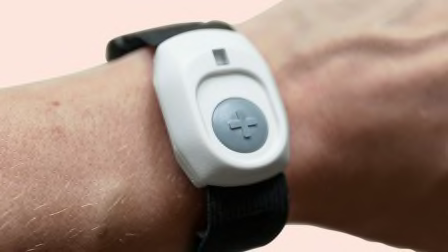What Causes Dizziness and How to Fix It
Feeling dizzy? Experts explain what you can do.

Feeling faint, light-headed, or as if the room you’re in is spinning? As many as 30 percent of people older than 60 experience dizziness at some point, about 50 percent after age 85.
This unpleasant sensation only rarely signifies a serious medical condition. But it can knock you off balance, leading to falls and injuries.
Why Do You Feel Dizzy?
One of the most common causes of dizziness and vertigo (specifically, a spinning sensation) in older adults is benign paroxysmal positional vertigo (BPPV), which may affect up to 10 percent of people by age 80, according to some estimates.
Dealing With Dizziness
If you feel even mildly dizzy, stop what you’re doing and sit down or lie down immediately so that you don’t fall. Check and record your pulse if you can, Fincher says. This information can help your doctor rule out potential heart-related causes of dizziness, including an arrhythmia.
Most bouts of dizziness don’t last more than a few minutes. But if it persists or worsens, or is accompanied by a severe headache or vomiting, changes in vision, difficulty speaking, numbness on one side of the body, or chest pain, call 911. “These could be signs of a stroke or heart attack,” Fincher says.
Otherwise, when you feel it’s safe, stand up or change positions slowly, and then drink a glass of water, Fincher says.
Let your doctor know about the episode. BPPV can usually be treated with a gentle head-tilting exercise called the Epley maneuver, which guides the crystals back to where they belong. An otolaryngologist, otoneurologist, vestibular therapist, or experienced primary care provider can teach you how to do a version of the maneuver at home.
Also, call your primary care provider if you experience dizziness after starting a new drug or changing the dosage of a drug you’re already taking, Fincher says. This may signal postural hypotension.
In that case, your doctor will probably take your blood pressure and pulse while you are lying down, sitting, and standing to see whether it drops with changes in position. If necessary, he or she can suggest changes to your medications or give you a urine test to find out whether you’re dehydrated.
Pointers on Prevention
Take your medications only as directed, and let your doctor know about new side effects.
And make sure you get enough fluids. Fincher recommends putting a half-gallon pitcher of water in the refrigerator each morning and making sure that it’s 90 percent gone by the time you go to bed.
Getting your hearing and vision checked regularly—and correcting any problems—may also help reduce the likelihood of future bouts of dizziness, Hain says. “If you have cataracts, get those fixed,” he says. “If your hearing is bad, get a hearing aid.”
Editor’s Note: A version of this article also appeared in the December 2020 issue of Consumer Reports On Health.




